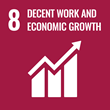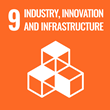
Project information
Experimentally-oriented Device Independent CrypTography
(eDICT)
- Project Identification
- 8C20005
- Project Period
- 3/2020 - 6/2024
- Investor / Pogramme / Project type
-
Ministry of Education, Youth and Sports of the CR
- ERA-NET
- QUANTERA
- MU Faculty or unit
-
Faculty of Informatics
- doc. RNDr. Jan Bouda, Ph.D.
- Mgr. Libor Caha, PhD.
- RNDr. Daniel Reitzner, PhD.
- Cooperating Organization
-
University of Debrecen
Uniwersytet Gdański
ETH Zürich
Austrian Academy of Sciences
Current state-of-the art quantum-assisted cryptography provides safety beyond what can be
achieved with current classical technologies. Yet still, its safety is at question when we consider
possibilities of quantum hacking or malicious producers of necessary quantum resources. This
project aims at overcoming these main limitations by radically shifting current paradigms—by using
device independent cryptographic (DIC) architecture. This is on one hand more demanding
on experimental resources and theoretical understanding but on the other hand provides qualitative
improvement in safety. DIC devices would then be not only safe against exploiting deviations
of a real life from theoretical model but they would also have possibility of verification whether
using such a device is secure.
The success of the project stands both on firm theoretical foundations of various backgrounds
and high-quality experimental realisation. This can be achieved only with the composition of
partners with high interdisciplinary reach. Our consortium contains excellent groups covering all
necessary parts within the project with their expertise both on theoretical as well as experimental
sides. With synergic effort we will devise new more efficient Bell inequalities with improved
critical detection efficiency bounds, derive new tools for device independent and iid analysis, and
design new DIC key distribution protocols. On experimental side our aim is to provide a testbed
for researched Bell inequalities. Namely we will perform practical tests of the possible state
production.
Sustainable Development Goals
Masaryk University is committed to the UN Sustainable Development Goals, which aim to improve the conditions and quality of life on our planet by 2030.
Publications
Total number of publications: 4
2024
-
Advantages of quantum communication revealed by the reexamination of hyperbit theory limitations
Physical Review A, year: 2024, volume: 109, edition: 2, DOI
-
General measurements with limited resources and their application to quantum unambiguous state discrimination
Quantum Information Processing, year: 2024, volume: 23, edition: 7, DOI
-
Incompatibility of quantum instruments
QUANTUM, year: 2024, volume: 8, edition: 1246, DOI
2023
-
Geometric bloch vector solution to minimum-error discriminations of mixed qubit states
Quantum Information Processing, year: 2023, volume: 22, edition: 8, DOI



